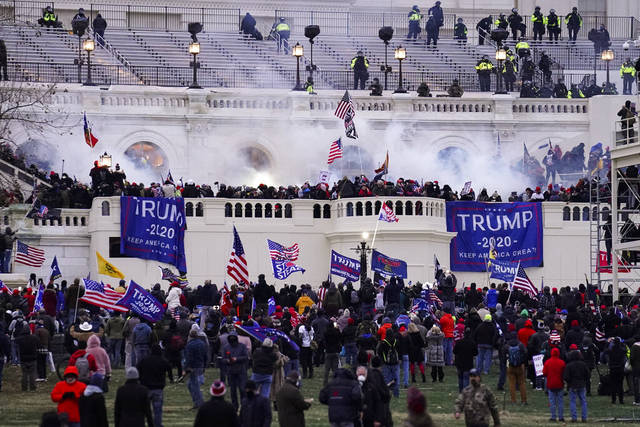I predicted the Jan. 6 attack at the U.S. Capitol. In the preceding weeks, as my Trump-loving, gun-toting cousin Chad was getting hundreds of likes on social media for threatening to hang liberal politicians, I realized the extent of popular support for political violence. Having supported democracy and conflict mitigation across the globe as a U.S foreign service officer, I had long understood the dangerous trends unfolding in the United States. My cousin, who lives in my rural Pennsylvania hometown, made the warning signs of potential violence personal.
Six months later, the U.S. is still dangerously divided and at risk of political violence. According to a recent report by Beyond Conflict, members of both political parties overestimate how much the other dislikes and dehumanizes them. Critically, members of both parties overestimate the extent of partisan disagreement on key issues. According to a researcher at the University of Illinois-Chicago, based on polling conducted in May and June, our political divide “transcends questions of policy and … goes to the heart of how we understand democracy and our role as citizens. It suggests that we are heading for a collision between our First and Second Amendment rights.”
We remain polarized in part because national discourse on key policy issues too often degenerates. When we lob our political opinions like hand grenades without truly listening to one another, our relationships become strained and our society becomes fragmented.
According to a September 2020 Pew survey, 49% of those familiar with the term “cancel culture” said it describes actions people take to hold others accountable. Yet 26% of Americans see those same actions as censorship. Some find the method of calling people out on key issues as mean-spirited; when their emotional defenses go up, people on the receiving end of such commentary become less likely to hear rational policy points.
Regardless of one’s political affiliations, trying to dominate a conversation, as opposed to actively listening in order to bridge divides, is a slippery slope. When we stop listening to each other, we damage our trustworthiness, our influence with one another and, ultimately, our social cohesion.
Social cohesion — defined as the cumulation of trust among neighbors, family members and friends — is essential to a country’s well-being. It’s the invisible social glue that holds us together and helps us bounce back in the face of shocks. It was social cohesion that enabled Americans to rally together in the aftermath of 9/11.
To maintain our country’s integrity, our social cohesion must endure even when we disagree. We can’t simply promote democracy and accountability without also minding the risks to our collective levels of trust.
When a country loses its social cohesion and becomes fragmented, it can more easily descend into vicious cycles of violent conflict. Without trust in government or among citizens with differing views, outsiders are often needed to supervise peace negotiations to restore law and order in the wake of violent conflict.
Reconciliation and rebuilding social cohesion can take decades. Slowly over time, citizens who suffered violence at the hands of people in their own communities must decide they want to heal those wounds and trust one another again. Citizens must then leverage trust and actively work across political divides to (re)build shared governance structures and nonviolent social and political norms.
I would like to remind my fellow Americans that it is not in our interest to be divided to the point of distrust and violence. Let’s not wait until our relationships become strained and our communities fragmented before taking steps to deepen trust with all our family members and neighbors.
When I saw my cousin’s social media post, I wrote an urgent warning: “When you promote violence against government institutions and representatives, you put civil servants like me in danger. You are going too far!” He responded, “I know what you have done in service to our country, so you are one of the few people I can hear this from.”
Because my cousin knows and trusts me, he was willing to listen. So on Jan. 6, when he traveled to the Trump rally on the National Mall, he left his guns at home. Then, when the situation escalated, he walked away.
Despite our vastly divergent political views, I am proud of my cousin for his peaceful political participation, and I look forward to engaging in dialogue with him about our democracy when I visit our hometown this summer. Our shared trust and love for America will help us see each other as human beings first, not as opponents.
We all have a critical role to play in mitigating insidious polarization and the risk of political violence in America. In addition to participating in formal democratic processes, we must also have difficult conversations about our country with family and neighbors who may disagree.
The trick is that we can’t just talk and debate. We must also listen to one other, engage in respectful dialogue and trust in the many things we have in common.
Danielle Reiff promotes democratic governance and supports peace-building and conflict mitigation in the developing world as a foreign service officer with the U.S. Agency for International Development. The views expressed here are her own and do not represent those of USAID. She and her cousin (Chad Tuttle) hail from Warren in Northeastern Pennsylvania (peacelovingdanielle2020@gmail.com).








